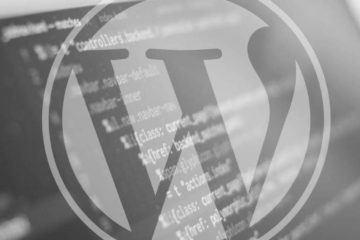What is PHP? An Overview for WordPress Site Owners
What do you need to know about PHP as someone who owns or manages a WordPress website? Let’s cover the basics.

Oops! We could not locate your form.
What do you need to know about PHP as someone who owns or manages a WordPress website? Let’s cover the basics.

PHP (Hypertext Preprocessor) is a very widely used, open source scripting language, originally conceived way back in 1994. It’s the foundation of WordPress, and lots of the internet in general. It allows for the creation of dynamic and interactive websites. The likes of Facebook, Wikipedia, Slack, and Etsy use PHP. It’s even used for many offline applications and software.
PHP evolved, and in 2014 a formal PHP specification was created. This is continuously worked on. According to W3Techs, as of April 2021
“PHP is used by 79.2% of all the websites whose server-side programming language we know“.
It has been ported widely, and can be deployed on most servers. It’s a pretty big deal.
PHP receives regular updates to improve performance and security. Some of these updates are smaller branch updates (ie. 7.3 to 7.4), and some are much bigger new version releases (ie, 7, 8).
These bigger version updates are permitted to break backward-compatibility of code. This is to make broader, more impactful changes. However, these changes can cause compatibility issues with websites, which were built to work with older versions of PHP. When this backwards-compatibility gets broken.
Luckily these larger version updates usually only occur every 5-10 years, with the smaller branch updates in between.
It is important to keep servers and websites up-to-date, with supported, compatible versions of PHP. They contain many new features and optimisations, which bring enhanced security and performance. We all know the importance of this, if managing a digital critical business.
As newer versions are released, the older versions lose support, and become less secure. Web hosts have to deploy the latest versions to their servers to maintain a secure service with optimised performance. This can have a knock on effect on hosted sites, if their codebase isn’t compatible with the PHP version of the server.
Incompatibility can cause:
There’s also the issue of plugins that become incompatible. Sites that rely on particular plugins that haven’t been custom developed, will need to wait on plugin developers to update them. To make them compatible with the latest PHP version.
Premium plugin developers are usually on top of this, but smaller ones can take a while. This can mean looking for an alternative. Or it means a website will have to sit on a server using the newest branch of the previous PHP version. At least until its plugins and codebase are compatible. Then it can be reliably ported to a server with the most recent PHP version.
These updates, especially the new version releases, bring in big changes. This will require development work to any PHP based websites or plugins. This is to ensure they remain compatible with the latest, most secure PHP version.
As mentioned previously, these bigger version updates tend to only occur every 5-10 years. The smaller branch updates happen in between, and require less development intervention.
Many things will have a bearing on the amount of development required to polish its codebase. In order to make it compatible with a new PHP version:
An audit can identify the amount of work required, and provide you with a quote of how many hours of work will be needed to bring your site up to scratch. So that it can then move to a server deployed with the most recent PHP version.
At the time of writing, the newest version of PHP is 8, but version 7.4 is still supported for now. This is to give hosting providers, website owners and plugin developers time to become compatible, due to this being a major version update. This will inevitably require development work for code compatibility, for most.
Is your WordPress site currently running the latest version of PHP? If not you should consider updating for:
Not sure what version of PHP you are running, or whether your WordPress site is up-to-date and technically sound? Consider one of our WordPress Health Check audits. We’ll delve into the technical set up, codebase, and hosting environment of your website, and audit it. Then we can provide you with an in-depth report on your website’s health; including its compatibility, security and performance.


WordPress Core version 6.5 was released on April 2nd. So let's take a quick look at some of the main changes it brings with it.
 Richard Ramirez
Richard Ramirez

WordPress Core version 6.4 is released today. So let's take a quick look at some of the main changes it brings with it.
 Richard Ramirez
Richard Ramirez

If you're looking for the right contact form solution for your WordPress or WooCommerce website, there are certainly no shortage of options on the market.
 Richard Ramirez
Richard Ramirez